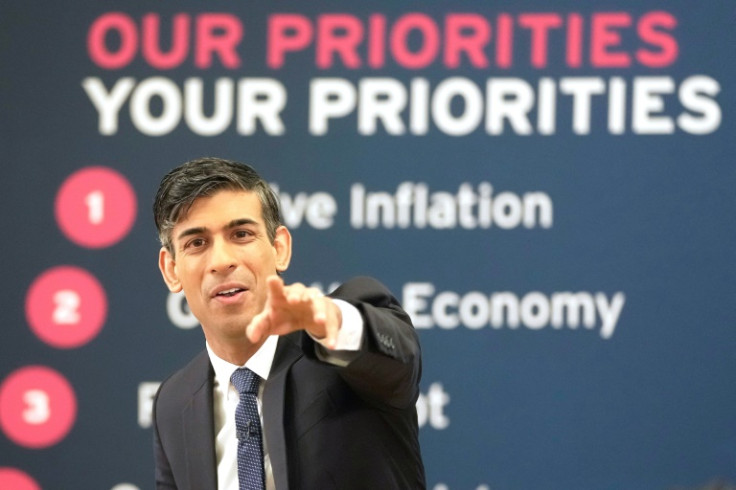Rishi Sunak meets the Prime Minister of India with UK-India trade deal on the agenda
British Prime Minister Rishi Sunak has met with Narendra Modi, the Prime Minister of India, at the G7 summit in Japan.

For those interested in the future of great power politics, India is one to watch. As Britain tilts towards the Indo-Pacific region, future relations with India will be a key aspect of British foreign policy.
According to the Integrated Review Refresh 2023 (IR2023), "the prosperity and security of the Euro-Atlantic and Indo-Pacific are inextricably linked", meaning that "Atlantic-Pacific" partnerships with countries such as India are of increasing importance.
With a massive population of over 1.4 billion, India is a close second to China. Recently, referring to its authoritarian political system and assertive stance abroad, British Prime Minister Rishi Sunak stated that China constitutes the "biggest challenge of our age to global security and prosperity".
Whilst Britain juggles the task of reconciling opposition to Chinese political norms with the need to manage economic interdependence, relations with India are somewhat closer.
At the G7 summit in Japan, Sunak met the Prime Minister of India, Narendra Modi. Whilst not a member of the G7, Modi travelled to Hiroshima in Japan to represent India as an invited country. Modi is a member of the Bharatiya Janata Party (BJP) and has been India's Prime Minister since 2014.
Sunak articulated his "strong support" for India's presidency of the G20. Modi will chair the G20 New Delhi Summit in September later this year. With a wider membership than the G7, the G20 is described as the "premier forum for international economic cooperation".
日本政府と日本の皆様の素晴らしいおもてなしに感謝いたします。
— Rishi Sunak (@RishiSunak) May 21, 2023
At this historic summit, #G7 leaders recommitted ourselves to the path of peace, freedom and democracy.
Thank you for your hospitality @kishida230 and Mrs Kishida. pic.twitter.com/Yl0470xyg4
The IR2023 report explains how Britain is in favour of the reform of the United Nations Security Council (UNSC). Britain would be willing to support India as a permanent member, alongside Brazil, Japan and Germany. Currently, the UNSC consists of just five permanent members: the United States, Russia, China, Britain, and France.
Alongside support for India's presidency of the G20, this indicates British support for India as a world-leading power.
Dating back to 1945, when they were originally allocated their seats at the UNSC table, the current permanent five arguably do not reflect the existing balance of power within the global international order, with major economies like India excluded.
At a deeper cultural level, relations between Britain and India are steeped in history. In 1947, India became independent of Britain, having previously been formally controlled by the British Raj from 1858 as a colony of the British Empire.
Like Britain, and in contrast to China, India is a democracy (the world's largest). One of the objectives set out back in 2021 in the "2030 Roadmap for India-UK future relations" is to "strengthen the bonds" between the two powers as "open and democratic societies".
However, whilst India is democratic, concerns exist over media freedom. In the 2023 World Press Freedom Index, India ranks 161 out of 180 countries, 11 places lower than in 2022. According to the international non-profit and non-governmental organization, Reporters without Borders, Media freedom concerns lie over the concentration of ownership of media organisations and the treatment of journalists who are critical towards the government.
UK-India Free Trade Agreement
At their meeting in Japan, on the agenda between the two leaders was progress towards a free trade agreement between Britain and India. Sunak and Modi agreed that work would continue "at pace" to arrive at a deal that is "mutually beneficial" to both nations.
The close economic partnership between Britain and India is reflected in research which shows that a record number of Indian businesses now operate in Britain.
The pursuit of a free trade agreement with India is part of Britain's post-Brexit strategy. Back in May 2021, the then British Prime Minister Boris Johnson agreed with Modi on the creation of a new Enhanced Trade Partnership (ETP), with the two leaders committing to the future negotiation of a free trade agreement. The announcement of the ETP came with the objective of doubling the value of British-India trade by 2030.
In late April this year, the ninth round of negotiations for a free trade agreement between Britain and India was conducted. These were preceded by the eighth round in March, and the seventh round in February. Prior to this, the sixth round of negotiations was staged back in December 2022, with the first round concluding as recently as the end of January 2022. This reflects a keenness for forging a deal according to the Overseas Development Institute.
In contrast, whilst there is an agreement between Sunak and Modi on the need to progress towards a free trade agreement between Britain and India, progress towards a free trade agreement with the United States has stalled since October 2020.
© Copyright IBTimes 2025. All rights reserved.





















